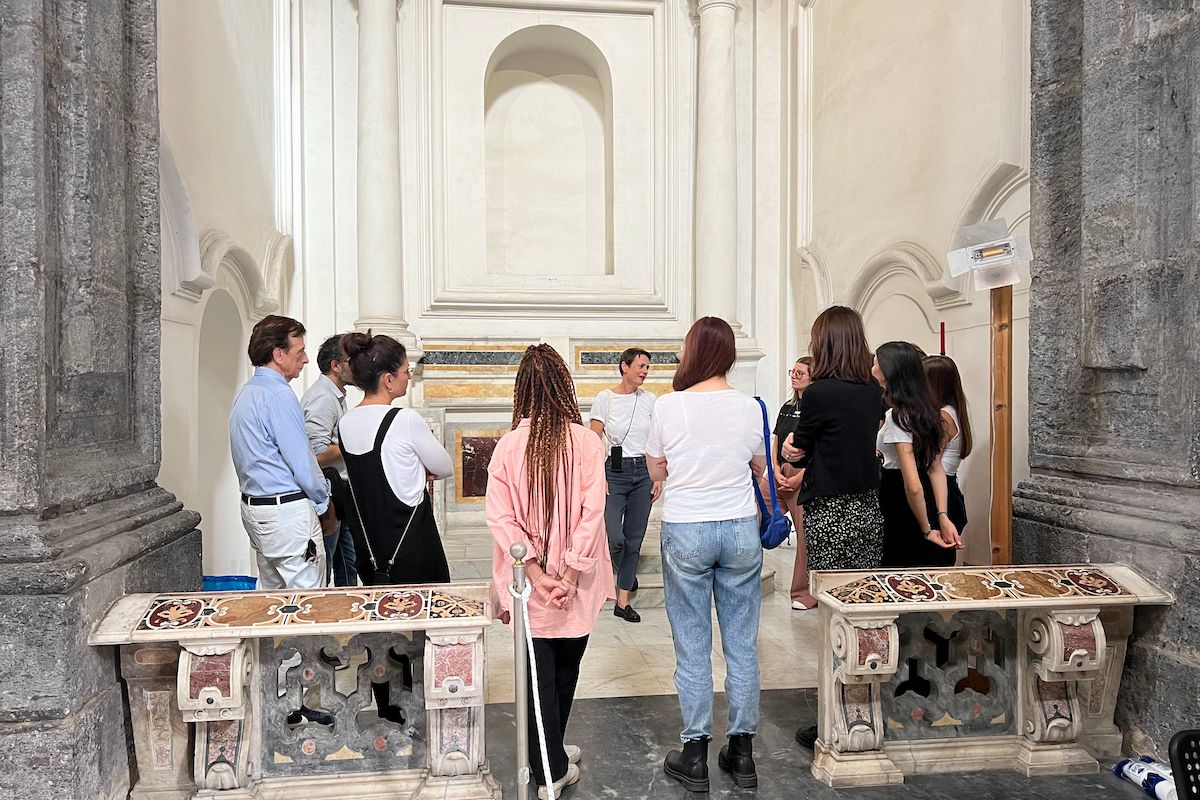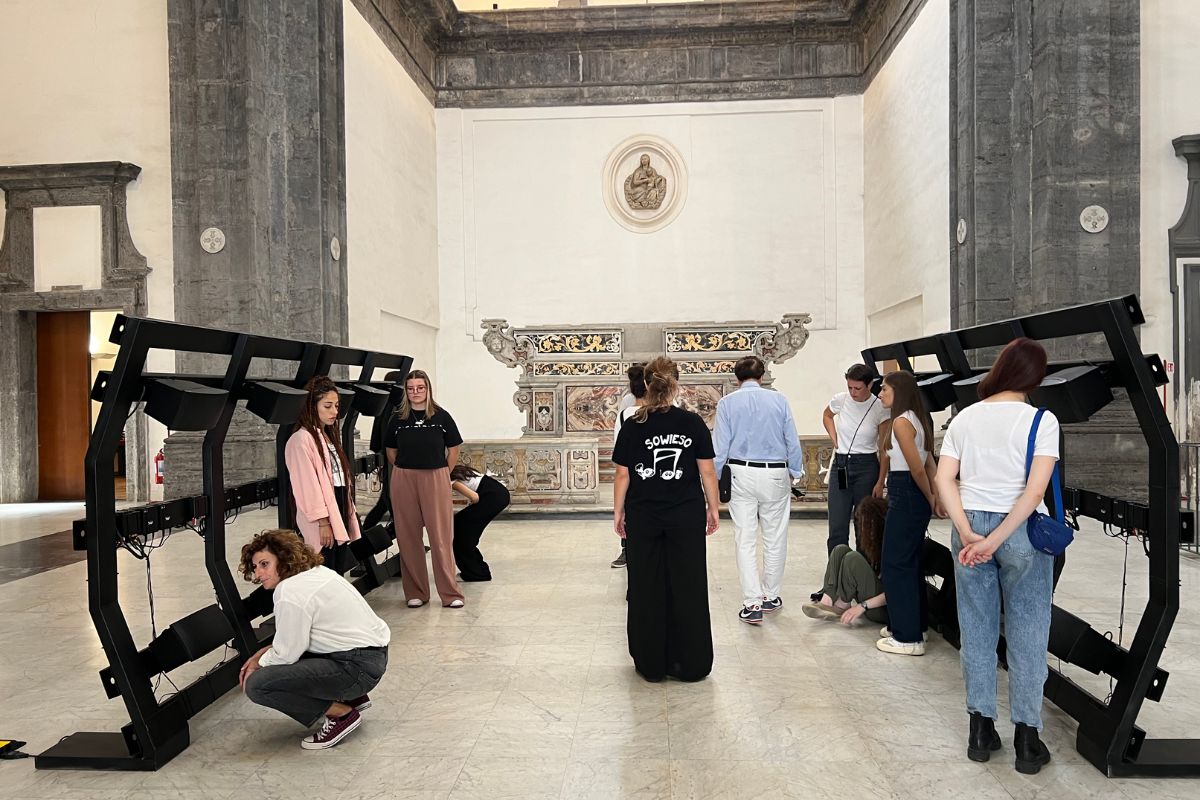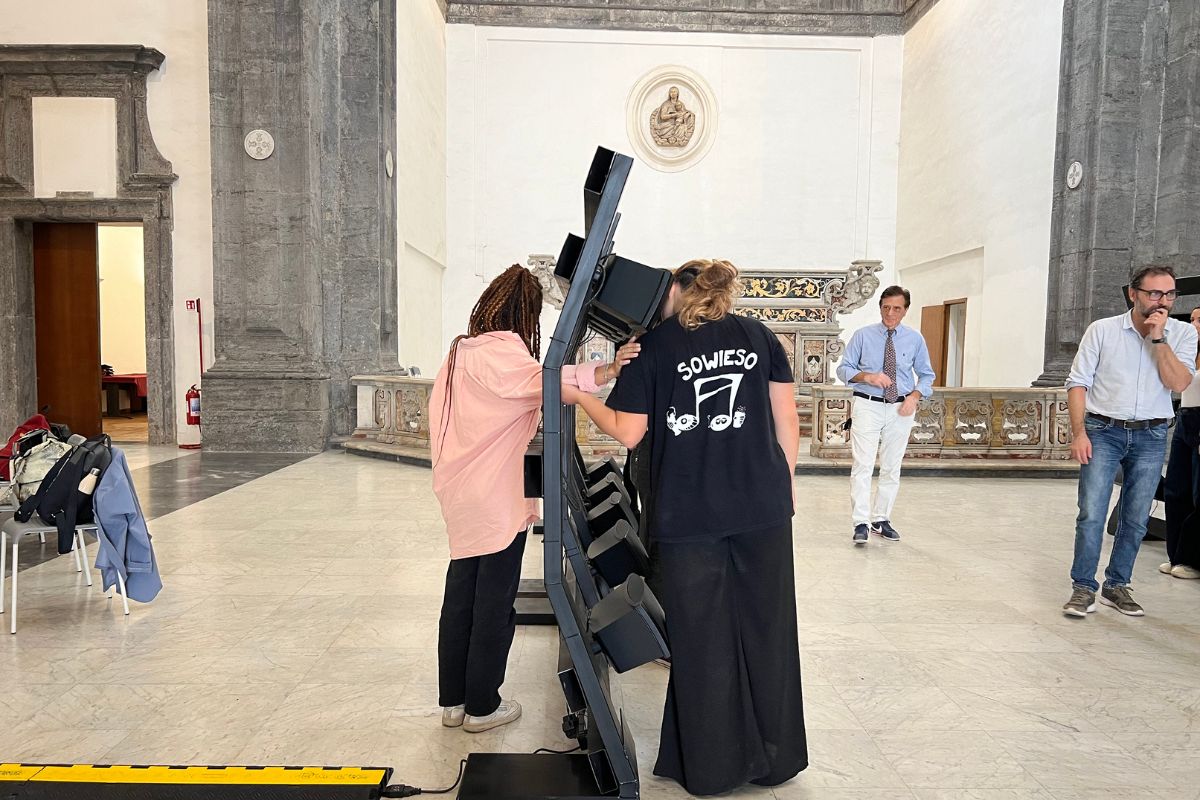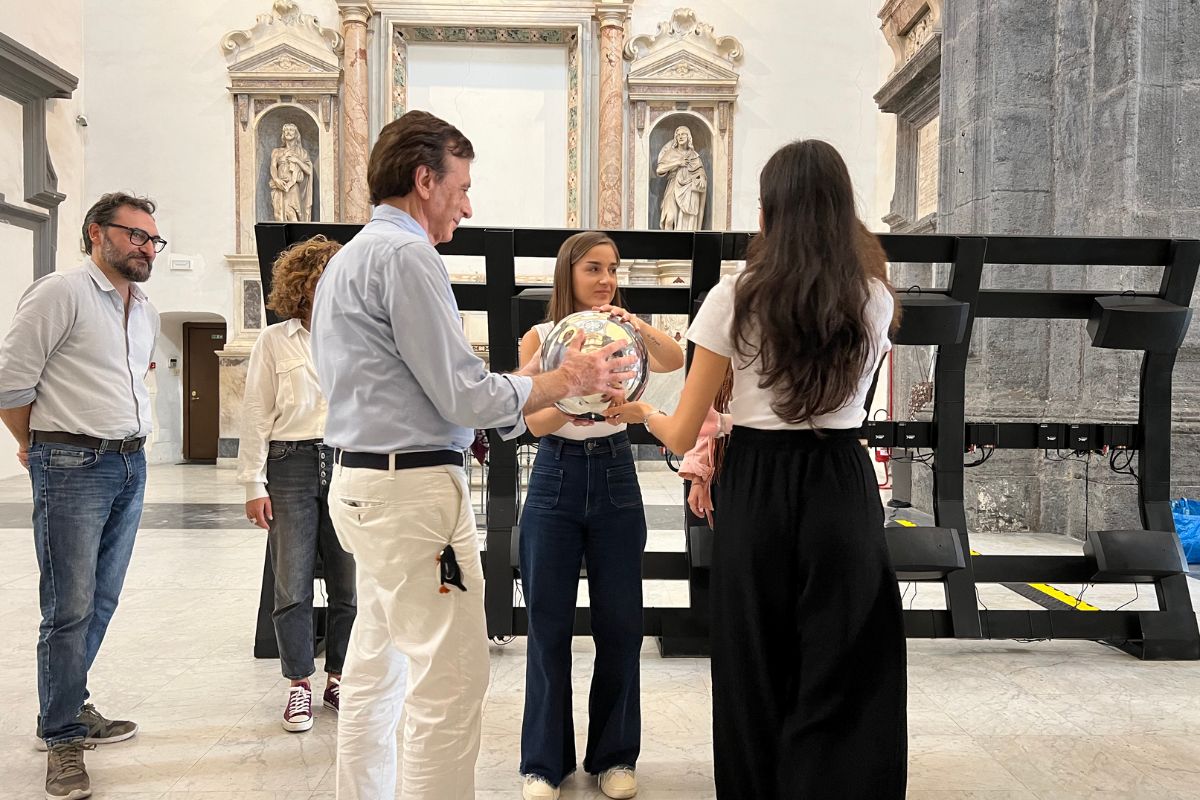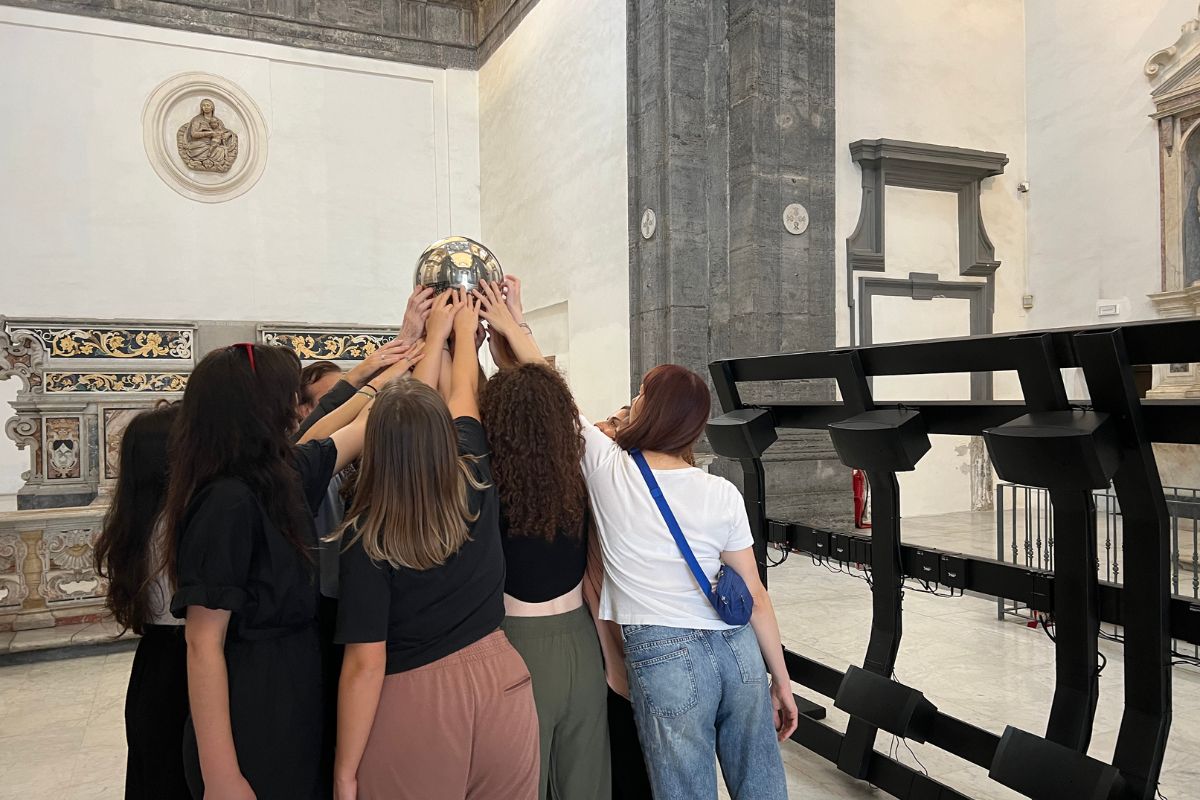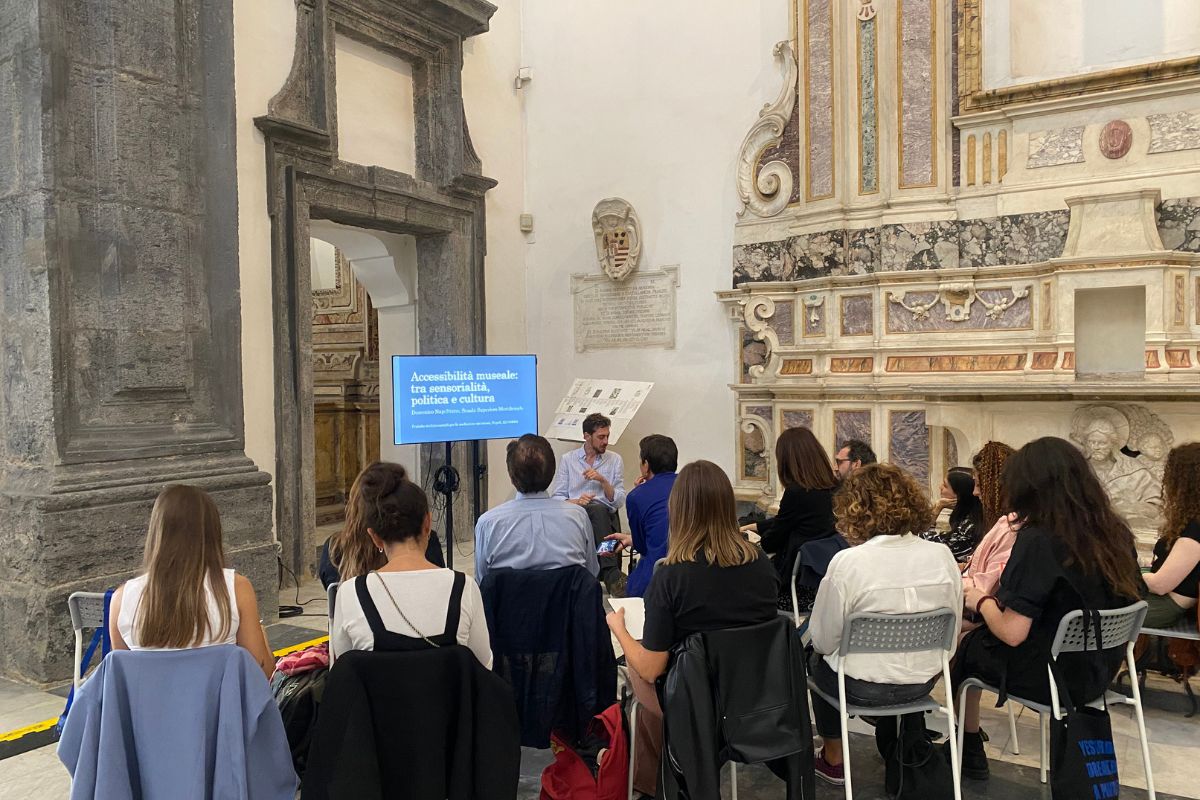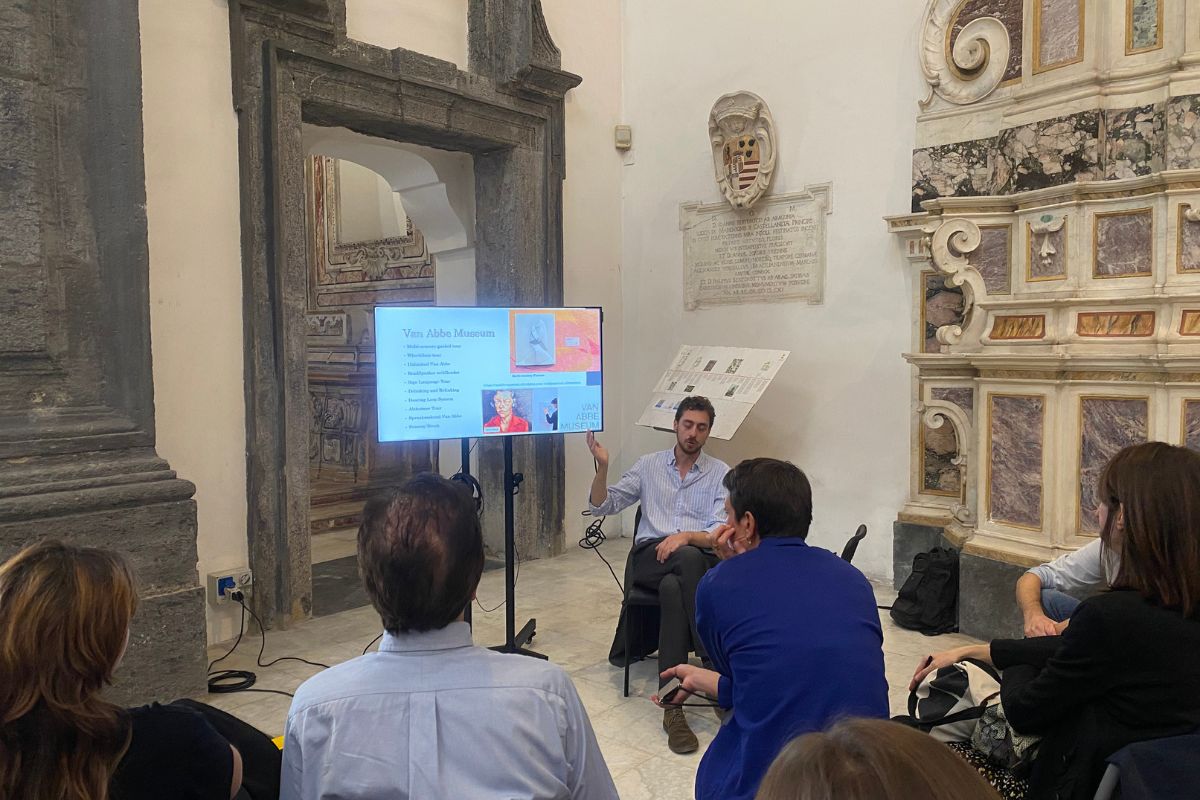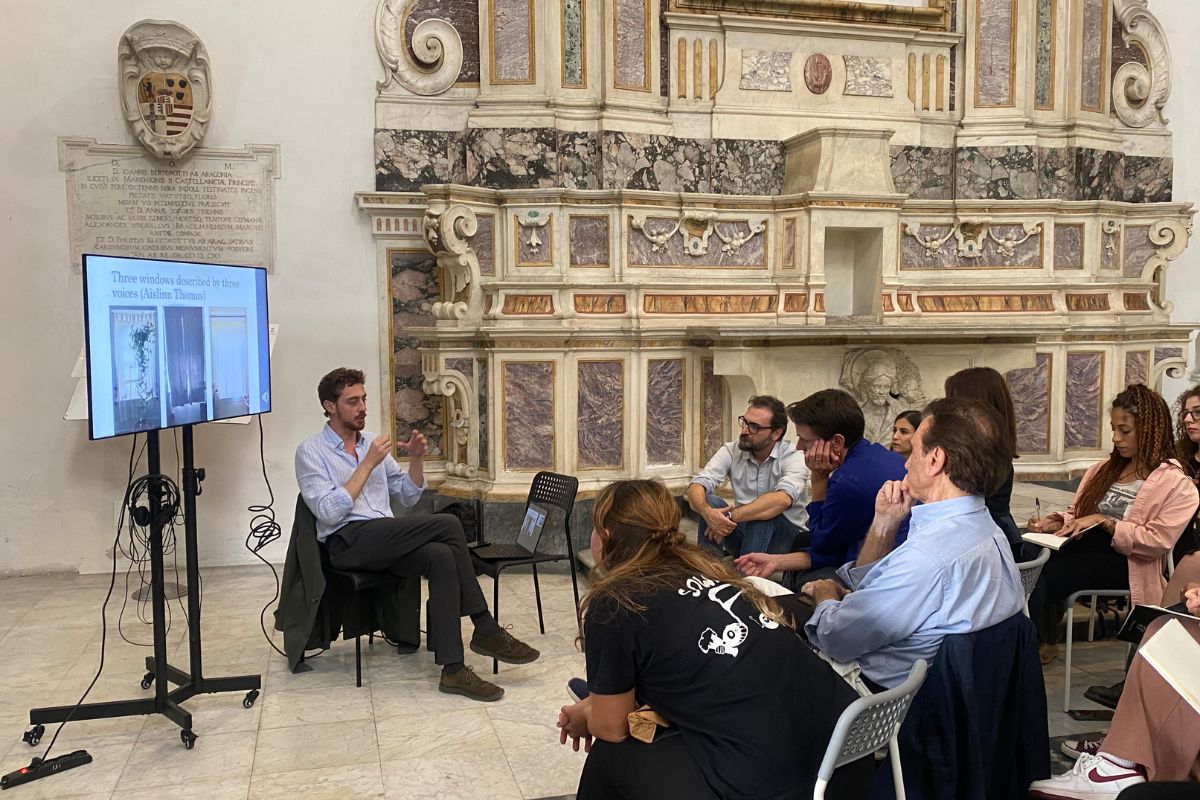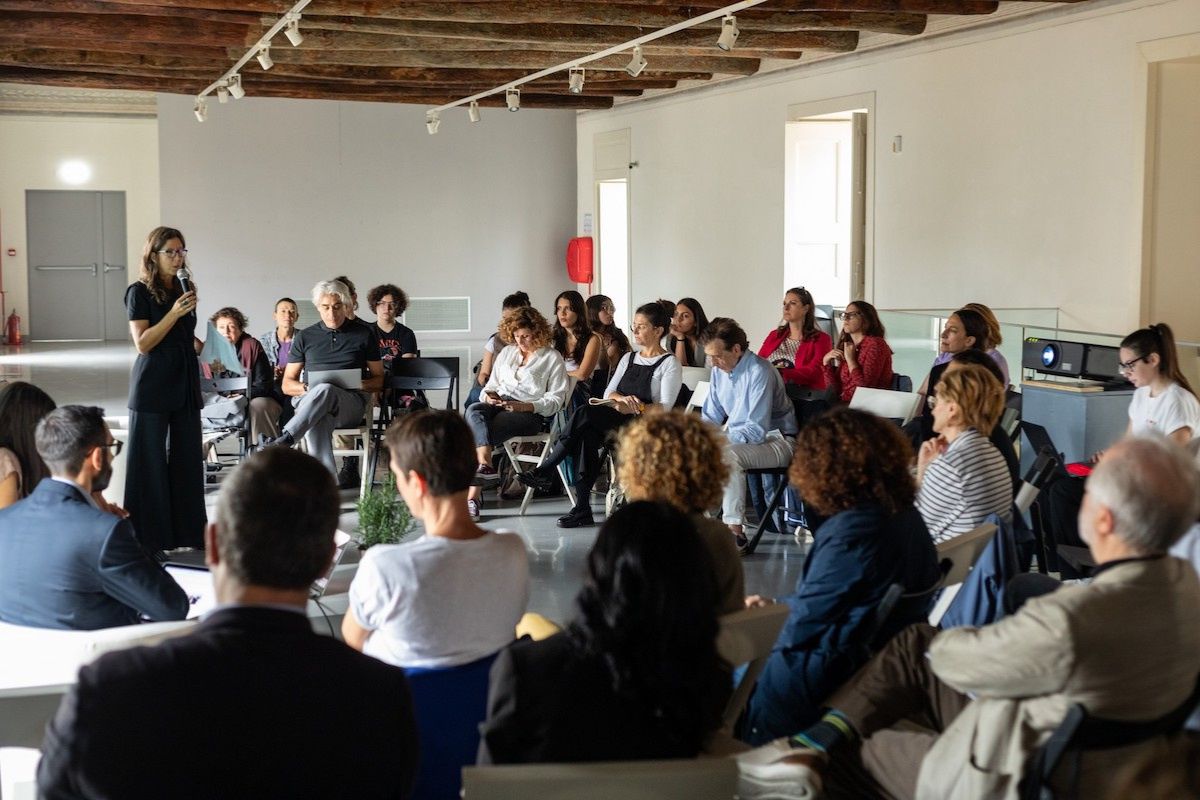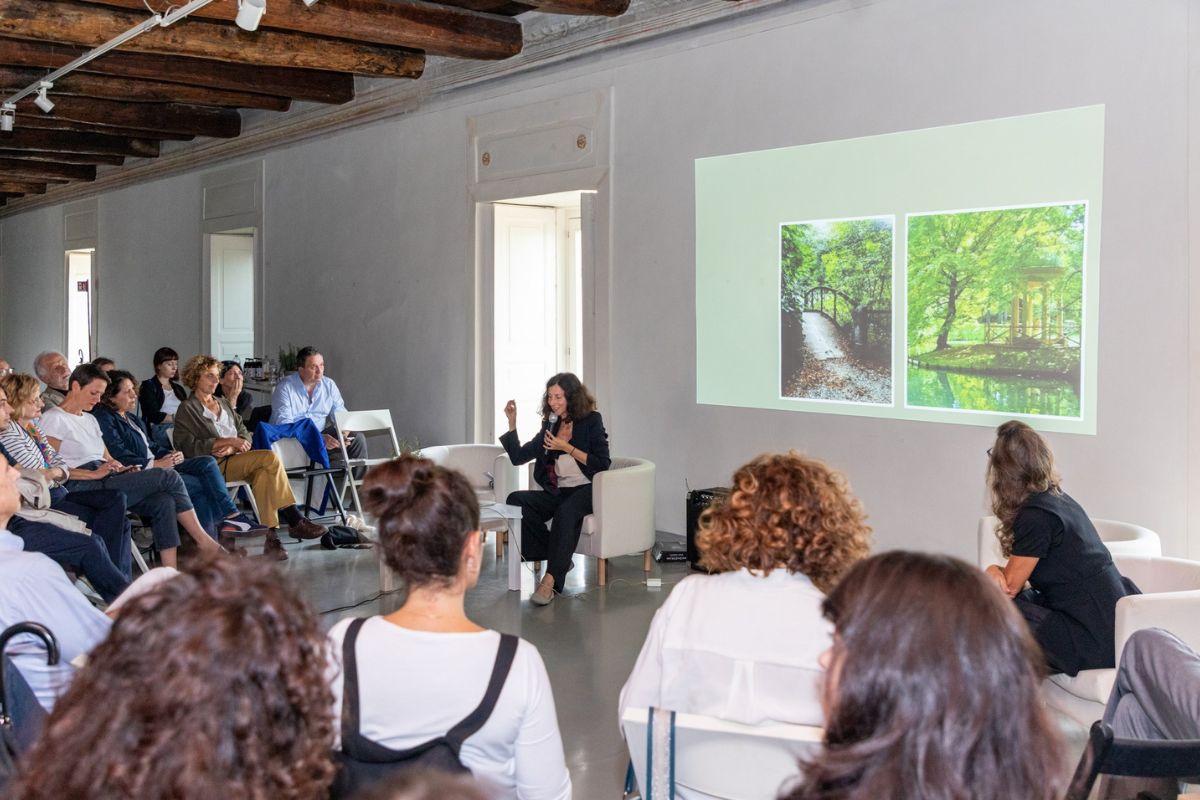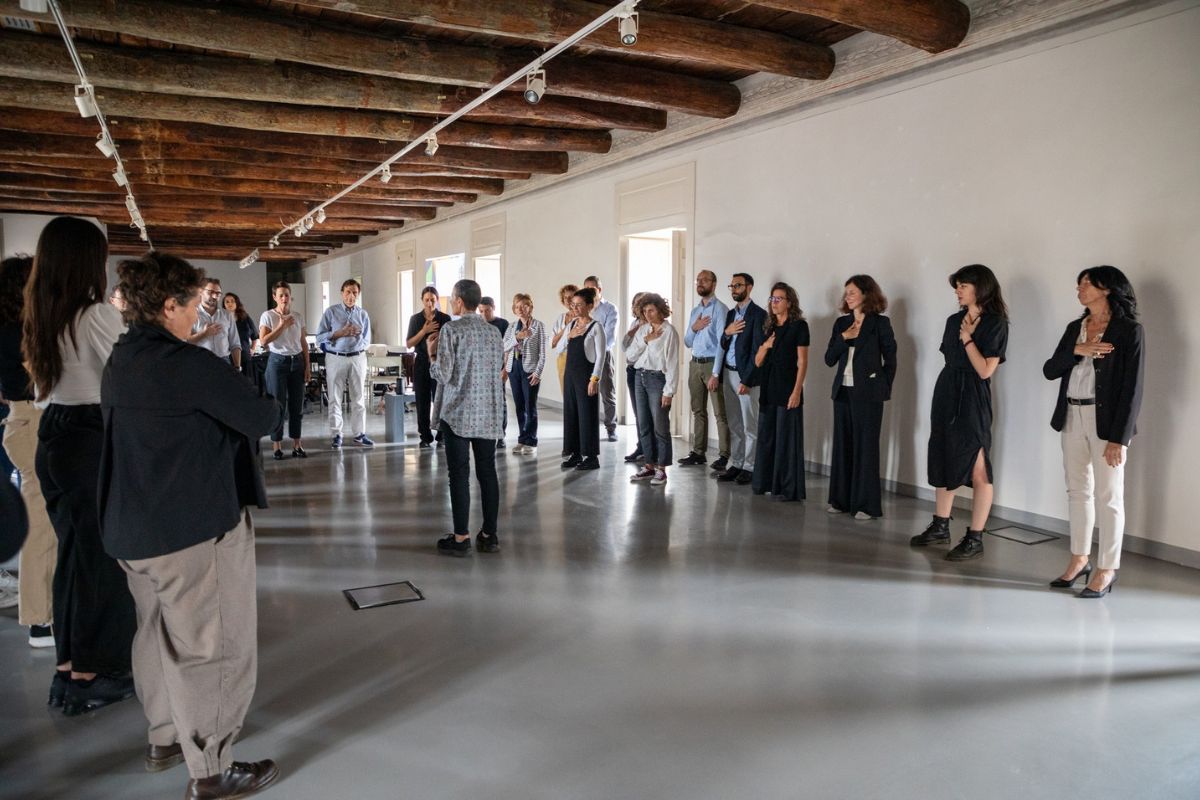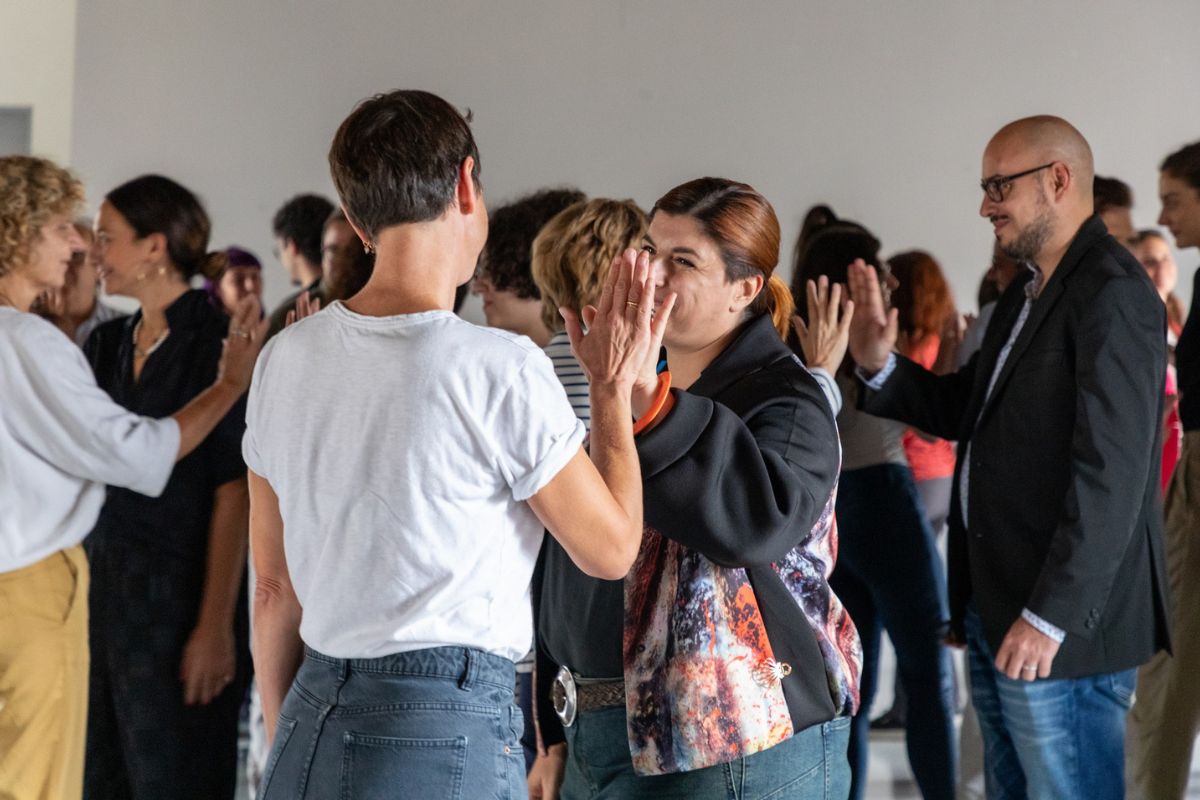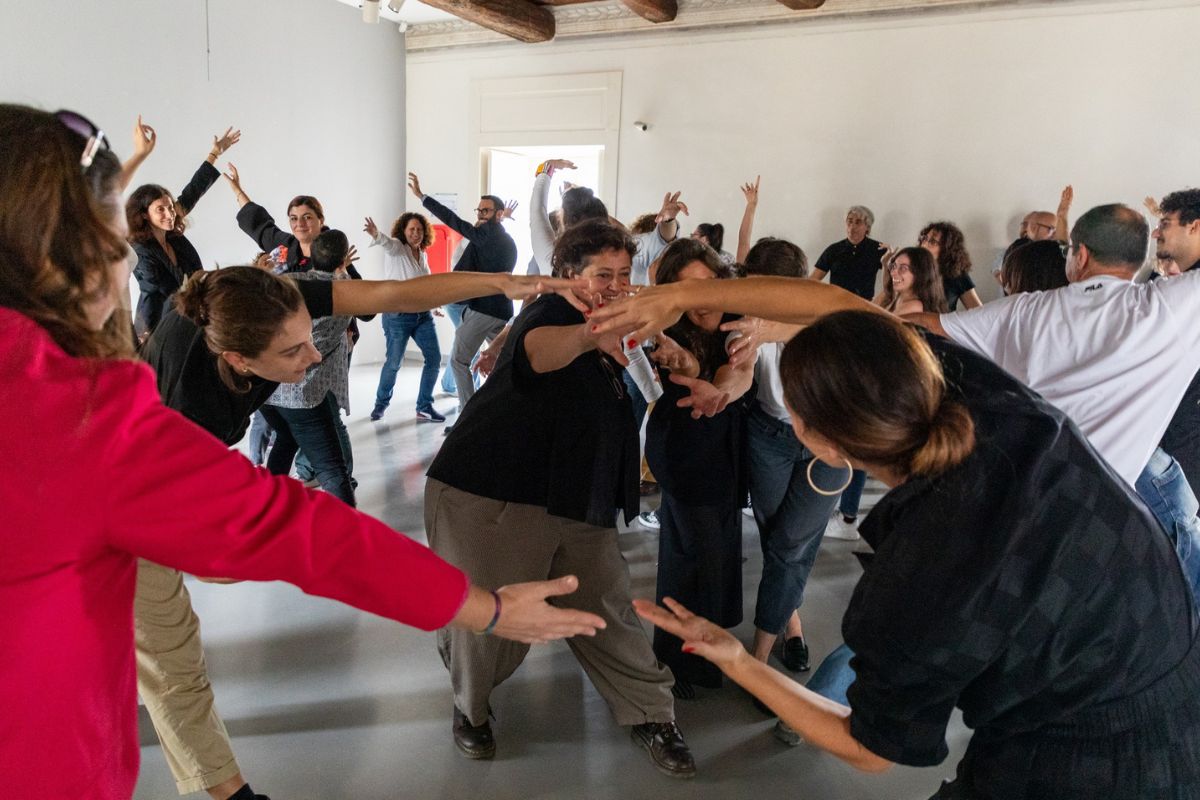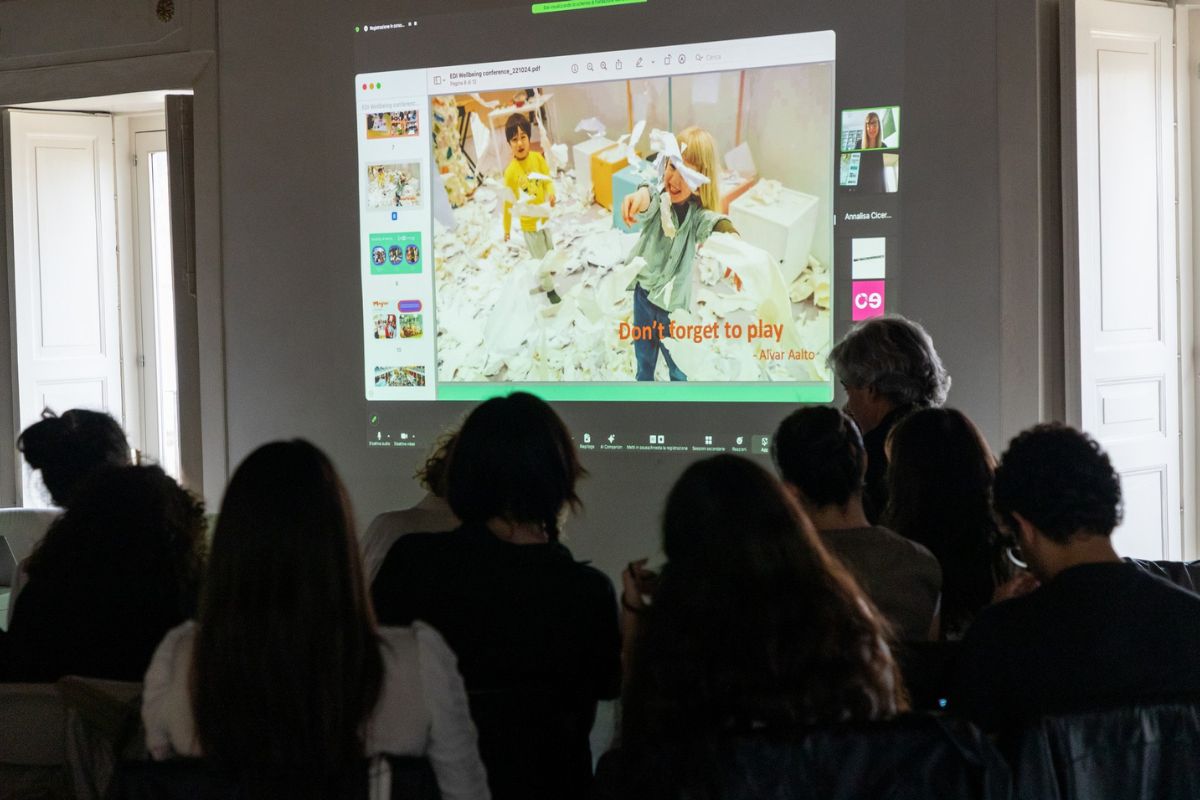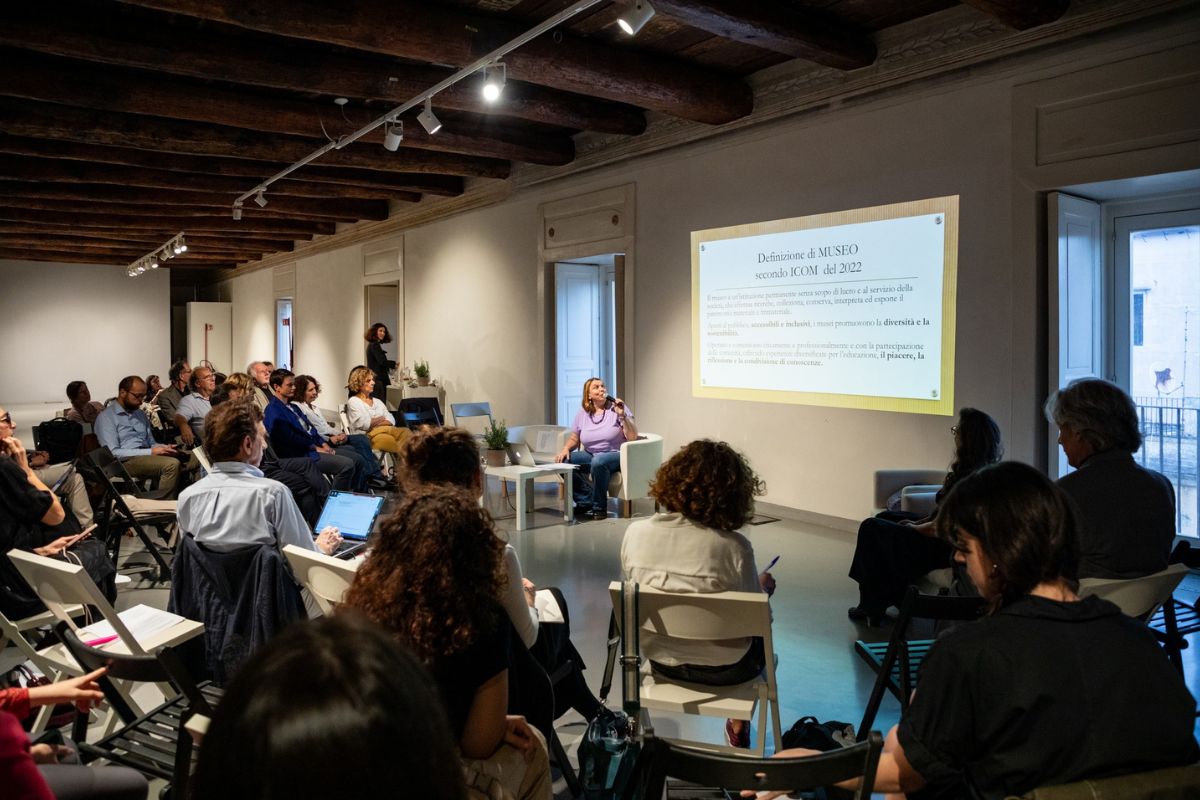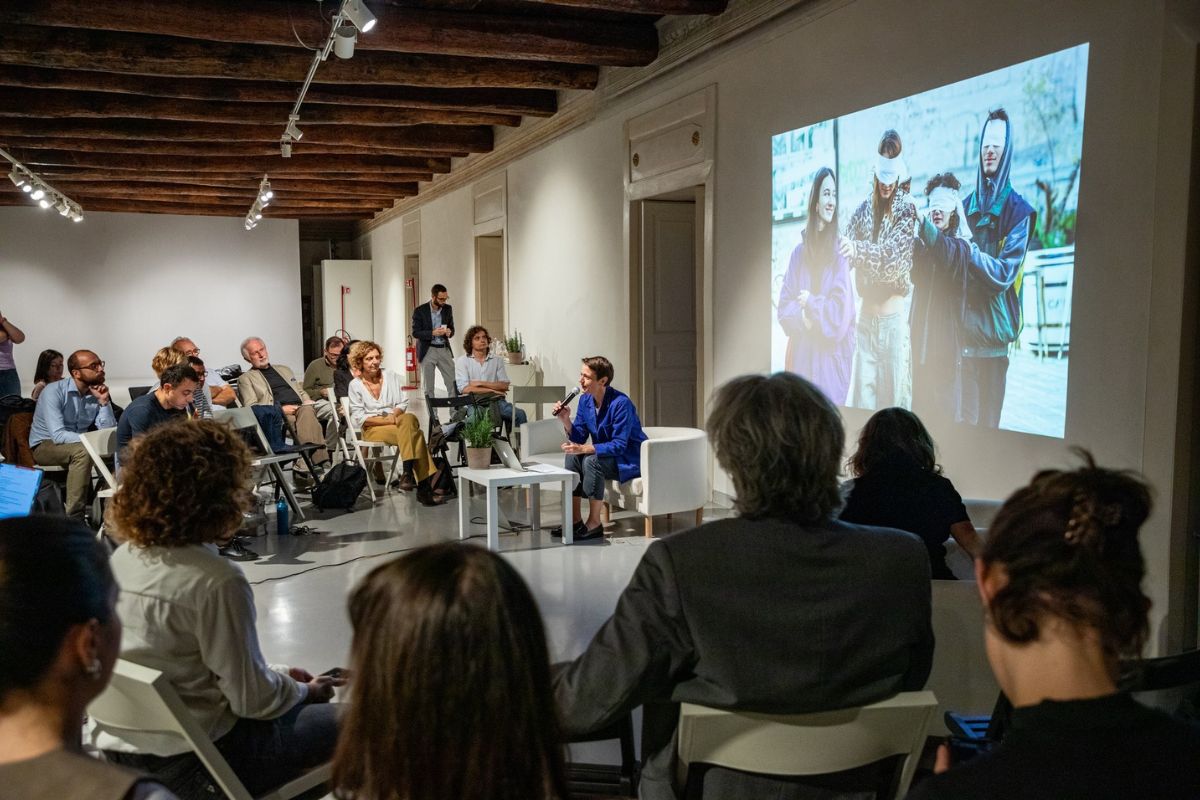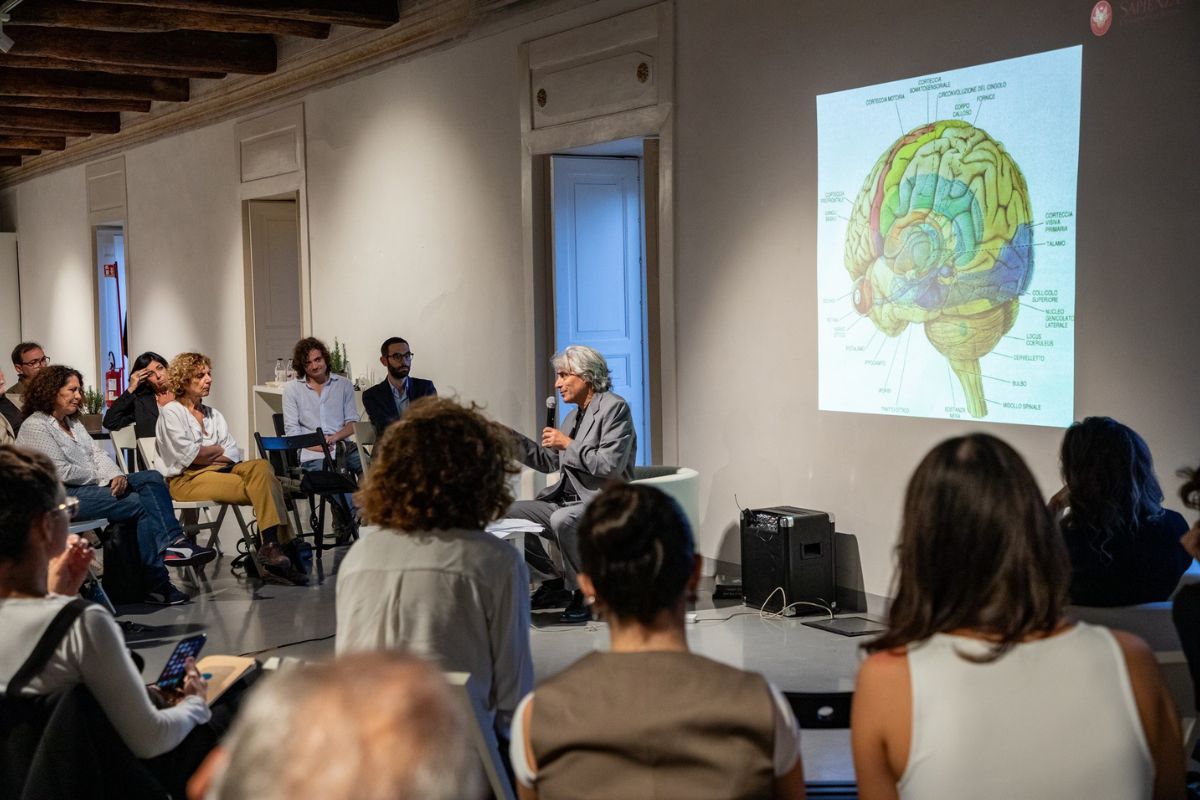22.10.2024 \\
Fondazione Morra Greco hosted Musei al Centro, a day of research and experiential practices to examine the role of the museum as a tool for social, physical and cognitive well-being.
Musei al Centro was held on October 22, 2024, in the spaces of the San Severo al Pendino church – as part of the public program for the exhibition Imitación Controlada, carried out within the Program for Contemporary Art funded by the Municipality of Naples – and the rooms of Fondazione Morra Greco.
Museum practices are continuously expanding and proving potential in promoting individual and collective well-being. We now acknowledge museums as places that foster personal interaction, learning and growth: viewers are no longer passive recipients of the artworks and the sites they inhabit but rather interact with them and become protagonists in an ever-exchanging conversation between cultural institutions and community.
The day was split into two panels, each aiming to discuss the importance of museum activities for the physical health – looking into practices such as art therapy and interactive tours – and the impact museum activities have on cognitive development, learning and memory.
Centering the Museum was primarily intended for museum professionals, educators, curators and students.
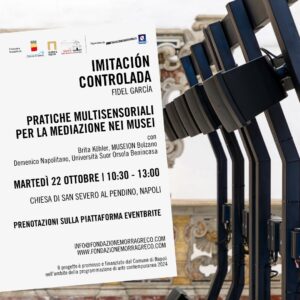 10:30 am – 1:00 pm | San Severo al Pendino Church
10:30 am – 1:00 pm | San Severo al Pendino Church
Pratiche multisensoriali per la mediazione nei musei (Multisensory practices for museum mediation)
Starting from the Imitación Controlada installation by Fidel García, the event explores how the sensorial dimension, in particular listening and the use of the body, can be integrated into museum mediation practices to facilitate learning and the museum experience. Combining a more theoretical part and a workshop-based one, Brita Köhler (Museion museum of modern and contemporary art in Bolzano) and Domenico Napolitano (Scuola Superiore Meridionale) will address the theme of the use of sensoriality as a resource and language for artistic practices, of mediation and interaction, between the body of those who experience the fruition of one or more works, space and time, favouring active involvement and reinventing the dimension of well-being.
With
Brita Köhler, Museion museum of modern and contemporary art in Bolzano
Domenico Napolitano, Scuola Superiore Meridionale
Please book your spot on the dedicated Eventbrite page at this link
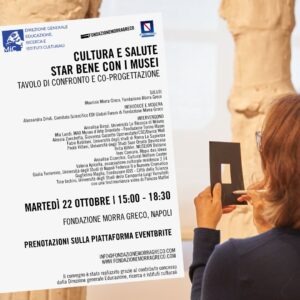 3:00 – 6:30 pm | Fondazione Morra Greco
3:00 – 6:30 pm | Fondazione Morra Greco
Culture and health. Well-being at the museum
Roundtable and co-planning session
Modern museums have stopped being intended solely for preservation: rather they have become key players in promoting the well-being of individuals and communities. As a matter of fact one of their main objectives has been the ability to encourage the psychological and physical well-being of different audiences through a strategy that values social responsibility, inclusion and respect for diversity.
A growing number of initiatives, both at the national and international level, demonstrate how culture can contribute to health and well-being. Drawing on these innovative experiences, the panel Culture and Health. Well-being at the Museum provides a space of exchange to address the current state as well as future developments of this fertile ground.
During the event experts from a variety of fields (neuroscience, medicine, biology, psychology and narrative medicine) will join in conversation museum professionals to investigate the potential of museums as sources of well-being. This will provide a unique opportunity to brainstorm ideas and stimulate interactions between culture and health. The aim is to build a future where cultural institutions can contribute to improving the quality of life.
The conference was realized thanks to a grant from the Direzione generale Educazione, ricerca e istituti culturali.
Please book your spot on the dedicated Eventbrite page at this link
Greetings
Maurizio Morra Greco, Fondazione Morra Greco
Host and moderator
Alessandra Drioli, Scientific Committee EDI Global Forum by Fondazione Morra Greco
Speakers
Annalisa Banzi, Centro Studi sulla Storia del Pensiero Biomedico (CESPEB) dell’Università La Bicocca di Milano
Musei brain-friendly: i progetti ASBA e Bewe per contribuire a generare esperienze trasformative nei visitatori e nello staff museale
Mia Landi, MAO Museo d’Arte Orientale – Fondazione Torino Musei
Il museo: la bellezza che cura
Alessia Zanchetta e Giovanna Garzotto, Operaestate/CSC/Dance Well
Il Progetto Dance Well
Helen Charman, Young V&A (online participation)
V&A South Kensington
Kornelia Kiss, Culture Action Europe (online participation)
Co-author of the CultureForHealth report
Rosanna Romano, Direzione Generale per le politiche culturali e il Turismo della Regione Campania
Governance della cultura e Benessere della Comunità
Fabio Babiloni, Università degli studi di Roma La Sapienza
Neuroscienze e arte nei musei: un matrimonio possibile
Paola Villani, Università degli Studi Suor Orsola Benincasa
La medicina narrativa per il benessere
Brita Köhler, Museion museo d’arte moderna e contemporanea di Bolzano
IN TUTTI I SENSI! Formati del benessere culturale al Museion
Annalisa Cicerchia, Cultural Welfare Center (online participation)
Verso la prescrizione sociale
Valeria Apicella, puntozerovaleriaapicella
La logica della sensazione | A proposito dell’installazione CARE
Giulia Torromino, Università degli Studi di Napoli Federico II e Numero Cromatico
I superstimoli dell’arte per migliorare le funzioni umane
Guglielmo Maglio, Fondazione IDIS – Città della Scienza
Progetto WELL_CDS
Tina Iachini, Università degli Studi della Campania Luigi Vanvitelli
Ambiente e benessere
Palazzo Maffei (video participation)
Progetto Minerva
Visual mapping design by Camilla Amato, Università degli Studi della Campania Luigi Vanvitelli, Dipartimento di Salute Mentale e Fisica e Medicina Preventiva and Giovanna Nichilò, Università degli Studi di Napoli Federico II, Dipartimento di Architettura
Discussant
Dario Aquilina, psicologo, Teatro dell’Anima
Erminia Attanese, CREE Center for the Registration of the European Ergonomist
Francesca Blandino, Fondazione Morra Greco
Floriana Carelli, Biblioteca e Complesso monumentale dei Girolamini
Deanna Castino, Biblioteca e Complesso monumentale dei Girolamini
Ernesto Colutta, Terme Stufe di Nerone
Ciro Cozzolino, Ospedale dei Pellegrini
Antonella Cuccinielllo, Biblioteca e Complesso monumentale dei Girolamini
Luciano de Venezia, Mediateur
Mario De Finis, Azienda Ospedaliera Ospedali dei Colli
Luigi Di Prisco, PO Frangipane ASL Av1
Marco Elia, Universitas Mercatorum
Anna Fresa, ADI Associazione Disegno Industriale Delegazione Campania
Ciro Gallo, Università della Campania Luigi Vanvitelli
Carla Giusti, ADI Associazione Disegno Industriale Delegazione Campania
Fabio Pignatelli, Progetto Itaca Napoli
Marianella Pucci, ICOM Campania
Alessandra Raiola, ERA Cooperativa Sociale (invited)
Daniela Savy, Università degli Studi di Napoli Federico II
Armando Traglia, Archivio di Stato di Napoli
Giacomo Smarrazzo, Gesco (invited)
Pasqualina Uccello, Museo e Real Bosco di Capodimonte
Angela Vocciante, Museo Archeologico Nazionale di Napoli (invited)
LISTA IN AGGIORNAMENTO

